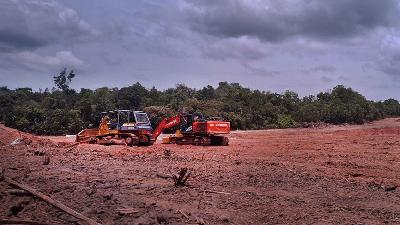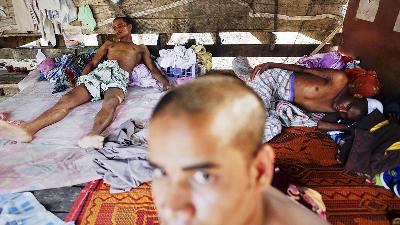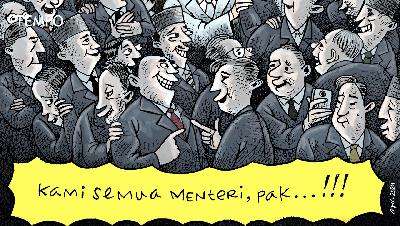Different Treatment of Rohingya Refugees in Thailand, Malaysia and Indonesia
Monday, October 21, 2024
Rohingya refugees in Thailand, Malaysia, and the Philippines are treated differently than those in Indonesia.
arsip tempo : 174546215981.
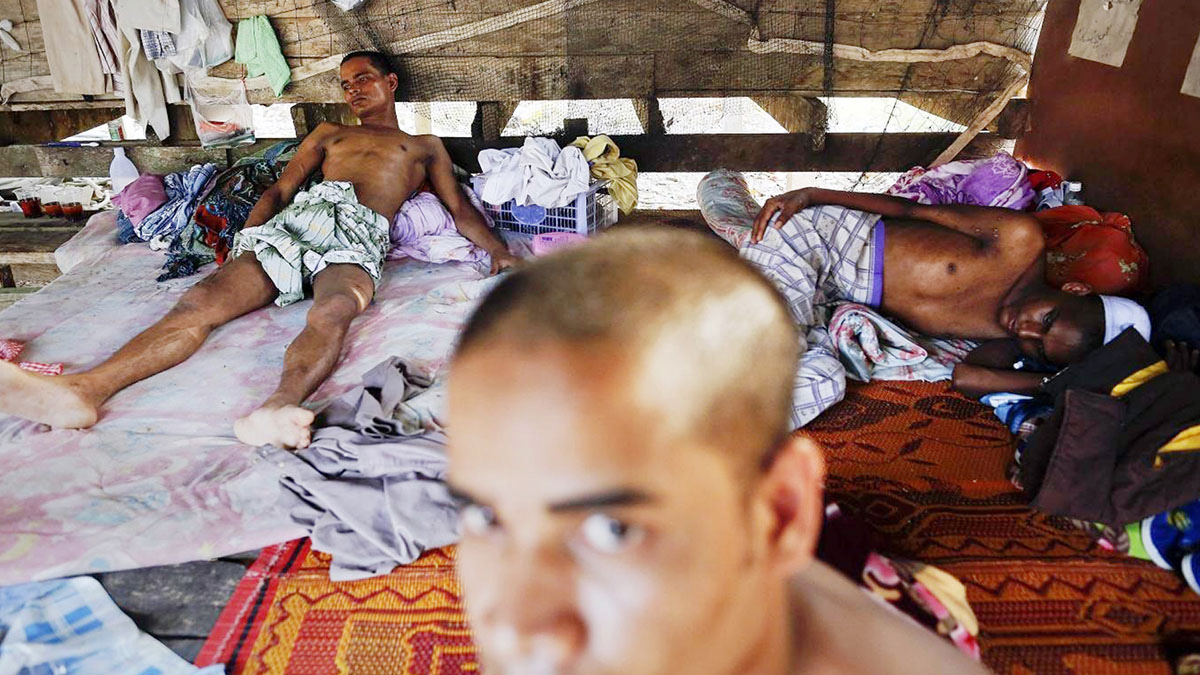
HAFSAR Tameesuddin recounted her experience as a Rohingya refugee in several countries. Before settling in Auckland, New Zealand, Hafsar lived in Thailand and Malaysia as a fugitive.
Without a passport or other identification, she fled Myanmar by land. Hafsar briefly stayed in Mae Sai, a border area in Thailand, while escaping from Myanmar. “I traveled by land, crossing through Thailand via the border,” she said on Monday, October 7, 2024, during a virtual interview.
Like other Rohingya, Hafsar was born stateless. Myanmar excluded the Rohingya and other minority ethnic groups from its citizenship laws. Hafsar lived and grew up in Rakhine until she was in his 20s. She then went to Yangon, which was Myanmar’s capital at the time, and hid there for several months while finding a way to leave the country.
Hafsar had difficulty traveling because she did not have official identification documents. The only way for her to escape from Myanmar at the end of 2009 was by hiring smugglers. While in Thailand, she did not communicate much with the local residents for fear of being caught by the authorities. During her stay, Hafsar said the border community welcomed her warmly. “They didn’t hate us, the refugees,” she said.
She also could not apply for refugee status due to limited access to contact the United Nations High Commissioner for Refugees (UNHCR). After a year and a half in Mae Sai, Hafsar tried to go to Malaysia. She conducted simple research and found a way to obtain refugee status there. “And I thought I might find some work and a long-term solution. That was my hope while traveling without legal documents,” she said.
To meet her needs, Hafsar borrowed money from family members living abroad. Most of the money was spent on paying the smugglers.
During her time in Malaysia, Hafsar did not have access to education. There were significant differences in the treatment of Rohingya refugees in Malaysia. Malaysia did not allow people without passports to access education.
Hafsar could not compare Thailand and Malaysia regarding refugee treatment. When she was in Malaysia, more refugees held UNHCR cards. But when Malaysian immigration teams checked refugee areas, some refugees would still get punished and imprisoned.
There were difficulties in communicating with refugees who were serving sentences. Even the UNHCR did not have access to help those individuals. “So, you don’t know how refugees are treated during their punishment. According to people who managed to escape the punishment, the conditions were very terrifying. The punishment was extremely inhumane,” Hafsar said.
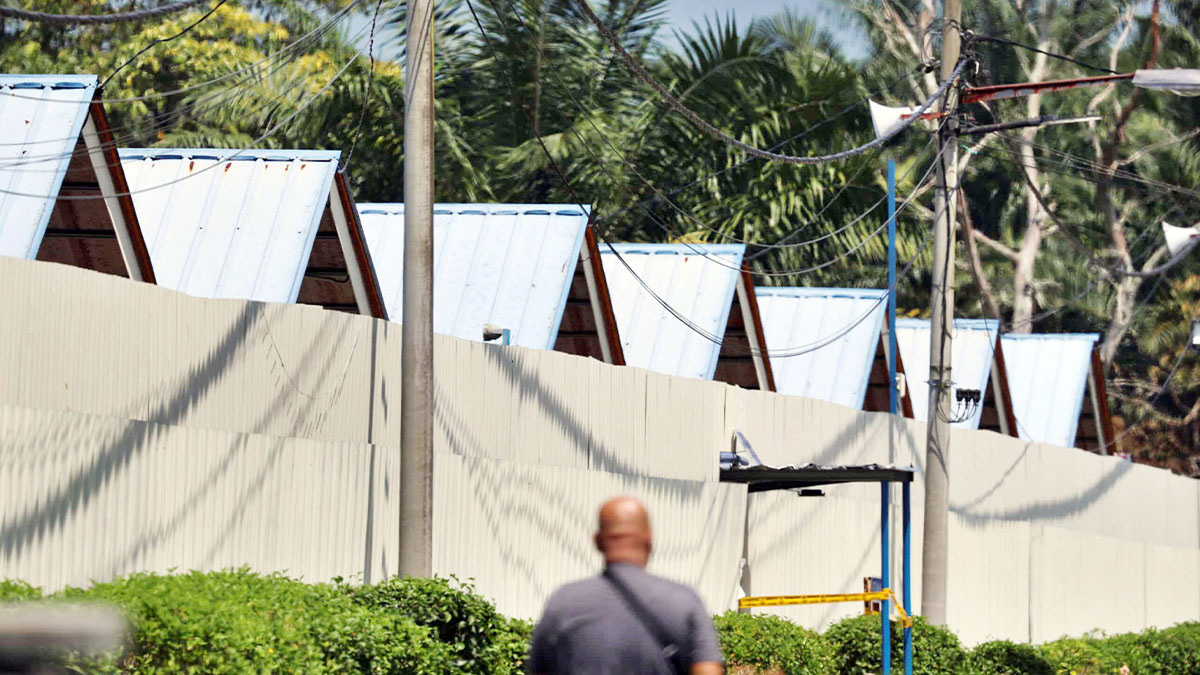
A security officer guards the entrance to a Rohingya refugee immigration detention center in Bidor, Malaysia, February 2, 2024. REUTERS/Hasnoor Hussain
Debbie Stothard, the founder of the Alternative ASEAN Network on Burma (ALTSEAN-Burma), confirmed reports that Rohingya refugees in Malaysia did not receive education. She gave an example of Noor Azizah, a Rohingya refugee who lived in Malaysia for six years.
Noor stayed in Malaysia from the age of 2 until 8. During that time, she did not have access to education. “Access to education is a basic need for everyone,” Stothard said in a virtual interview on Saturday, October 12.
Noor Azizah now lives in the United States and has become a software expert. Stothard lamented the situation faced by refugees like Noor Azizah, who did not get access to education while in Malaysia. Noor could have been a source of pride for Malaysia had she been educated there.
“As a Malaysian, I’m proud that Noor Azizah succeeded in another country, but I’m also ashamed of the Malaysian government. Noor Azizah could have contributed significantly to Malaysia, Asia, and even the world if she had been given access to quality education in Malaysia,” Stothard said.
Refugees have limited access to education and health care in both Thailand and Malaysia. Although there is no formal educational support for refugee children, according to Stothard, some organizations in Thailand advocate for them to gain access to education.
One Rohingya refugee child who received informal education was Yasmin Ullah. At that time, she was between 3 and 19 years old. According to Stothard, Yasmin learned the Thai language well and became part of the social community in Thailand. Her love for Thailand grew, and she often returned to vacation in the country.
Stothard added that education is essential for refugees to thrive in society. Without education, they could eventually engage in criminal activities. “So far, refugees have only been used as money-making machines by irresponsible people, leaving them fearful and oppressed. Without education, these refugees don’t understand their legal rights,” Stothard said.
In addition to facing limited access to education, refugees are prohibited from working. In Indonesia, Malaysia, and Thailand, they are not allowed to work in the formal sector.
However, in Malaysia, some refugees manage to gain access to work. “They don’t have formal rights to work, but many refugees can access informal jobs in Malaysia,” said UNHCR Indonesia Senior Protection Officer Emily Bojovic when met in Jakarta on Wednesday, October 2.
According to Bojovic, even though they work in the informal sector, refugees can achieve self-reliance. “That access is very valuable for those surviving in Malaysia. In fact, the majority of Rohingya refugees in Indonesia are willing to go to Malaysia because they assume they can work there,” she said.
Regarding refugee handling in several Southeast Asian countries, Bojovic said the Philippines offers relatively good conditions. One of the Philippines’ offers is a proper care system for refugees. “Refugees also have access to basic rights in the Philippines,” she said.
Although refugees are well-treated, the number of refugees in the Philippines is small. As a predominantly Christian country, according to Debbie Stothard, the Philippines is not a primary destination for Rohingya refugees. “Usually, Rohingya refugees look for Muslim-majority countries, like Indonesia and Malaysia,” she said.





